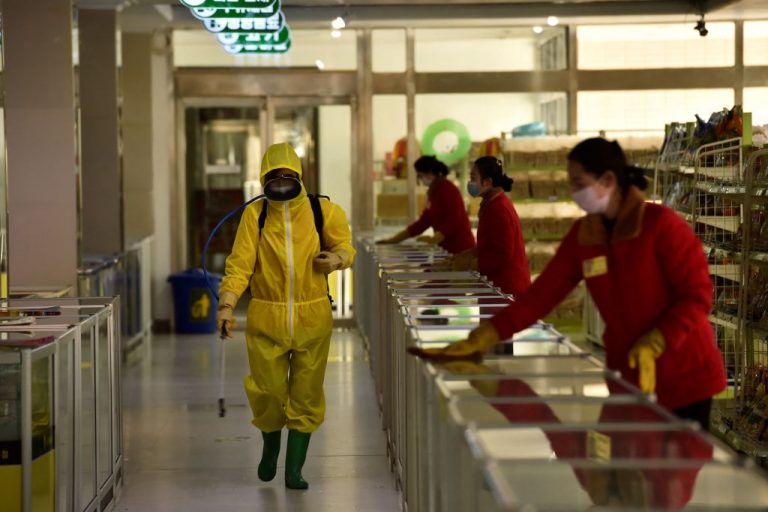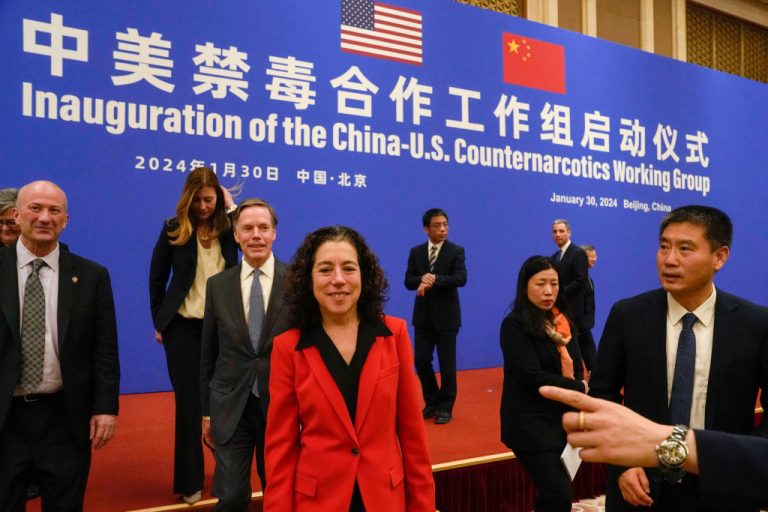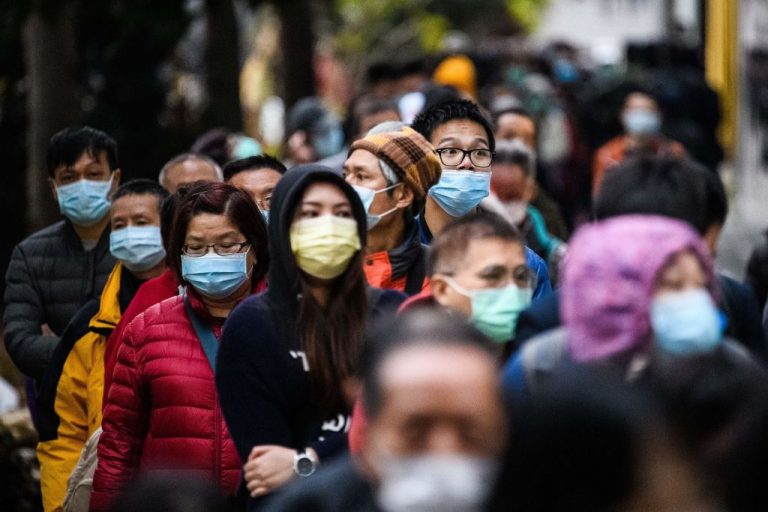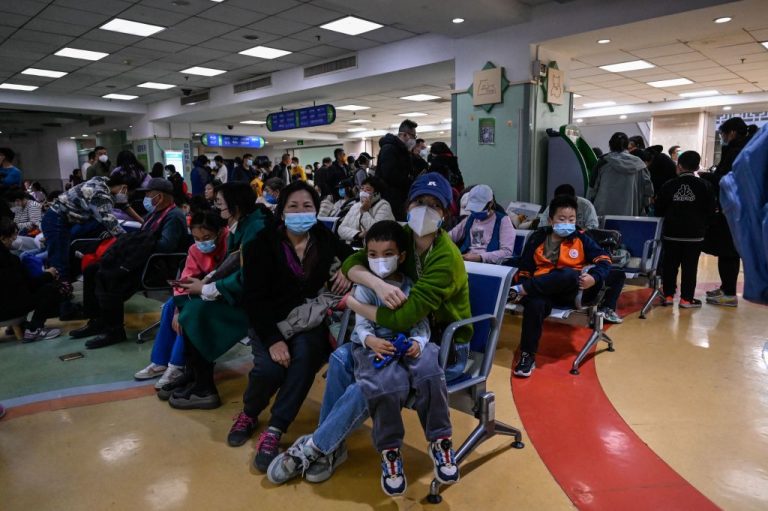After more than two years of claiming that it had zero cases or transmissions throughout the pandemic, North Korea acknowledged on Thursday, May 19, that at least one person had died from COVID-19.
The country announced its first positive case of the virus on May 13, but the number of infections is suspected to have surpassed 2.5 million, based on odd fever statistics put out by the regime. However, the country suffers from a severe lack of resources for testing as well as for treating those with severe symptoms.
And as most countries have let up on lockdowns and vaccine mandates, North Korea has followed its ally China in pursuing a zero-tolerance approach.
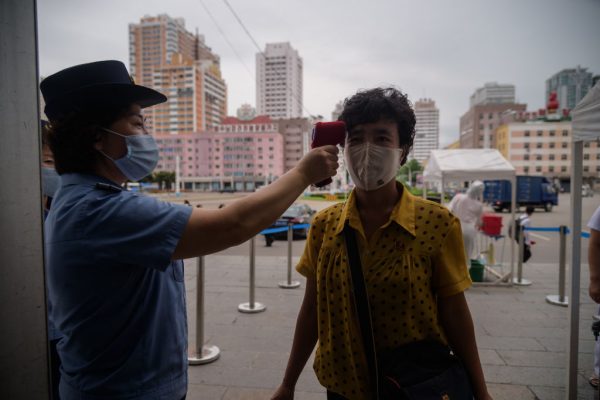
State mouthpiece Korea Central News Agency (KCNA) reported that 187,800 people were undergoing treatment in a quarantine facility for a “fever of unknown origin.” The report added that the mystery “fever” had spread throughout the country since the end of last month, though the report did not specify how many of those people had tested positive for COVID-19.
RELATED READING:
- Desperate Residents Protest Shanghai Lockdown: ‘You are driving people to their deaths’
- Workers in Hazmat Suits Seen Beating Shanghai Residents to Enforce ‘Zero-COVID’ Regulations
- North Korean Women ‘Rented’ to China for Work Disappear From Shanghai Dorm, Presumed Defected: Report
The isolated, totalitarian state of nearly 26 million people has told North Koreans to boil their water before drinking it, gargle salt water, and consume willow leaf tea as ways of fighting off the infection.
Success
You are now signed up for our newsletter
Success
Check your email to complete sign up
Authorities also gave strict instructions banning all social gatherings and instructed people to “observe personal hygiene, social distance, wash their hands frequently, and properly ventilate the indoor air to prevent spread of the virus,” two sources familiar with the situation in the country told Radio Free Asia (RFA).
North Korea’s leader Kim Jong-un blasted his own officials’ COVID-19 response at a recent Party meeting, blaming them for their “non-positive attitude, slackness, and non-activity,” KCNA reported on May 18. While presiding over a Politburo meeting (the supreme body of the country), Kim also ordered a nationwide lockdown and declared a “maximum emergency epidemic prevention system.”
“At 5 p.m. [Tuesday], an emergency directive from the national emergency quarantine command of the Central Party’s Political Bureau was issued to all parts of Pyongyang. Specific project details were delivered to the city’s various levels of units, enterprises and the neighborhood watch units in implementing the quarantine project to the maximum emergency quarantine system,” the source told RFA on condition of anonymity, citing security concerns.
“It is the first time that we have acknowledged the influx of COVID-19 and it is the stealth Omicron variant. Authorities are reassuring residents that it is a virus similar to pneumonia or flu and can be overcome with domestically produced drugs,” the second source added.
Pregnant women forced to quarantine in harrowing conditions
In addition, pregnant women in North Korea who test positive for COVID-19 have been forced to quarantine without any proper treatment in makeshift facilities, leading to a number of stillbirths in the country, RFA reported, citing two anonymous sources with family in the country.
The only medical care quarantined expectant mothers in the country’s South Pyongan province were given was two painkillers per day — the same form of treatment given to all COVID patients in the country, the two sources told RFA.
North Korean authorities also placed many pregnant women who were suspected to be infected with the virus into dilapidated warehouses, cooperative farms, factories, or hotels hastily converted into isolation centers.
According to one of the sources, health authorities haven’t provided further care or treatment to the mothers after giving birth — even if they have high fevers or are exhibiting signs of postpartum depression.
“Families are outraged at the quarantine officials, who say they can only let the grieving mothers go out if they recover from their COVID-19 symptoms,” the second source told RFA.
Pyongyang has previously received offers of vaccine donations from the World Health Organization (WHO) and the United States, but did not respond to those offers.



